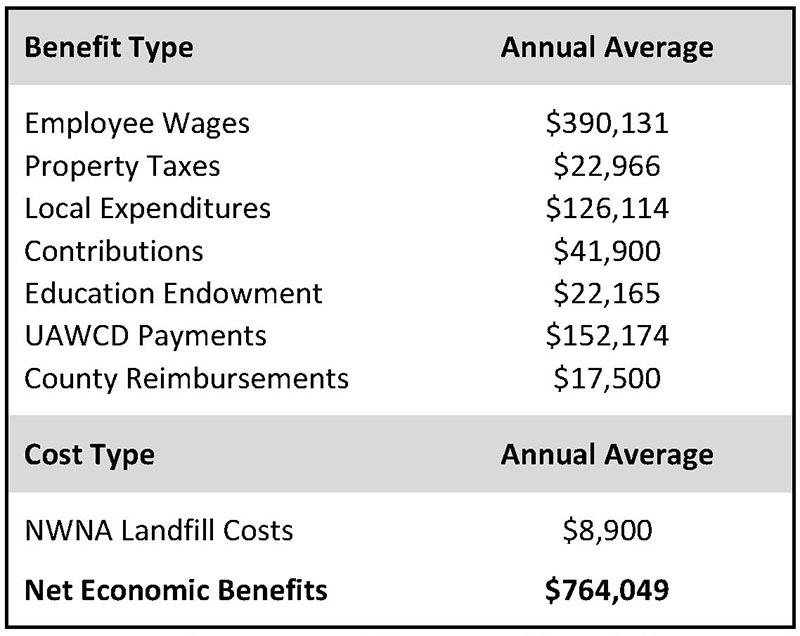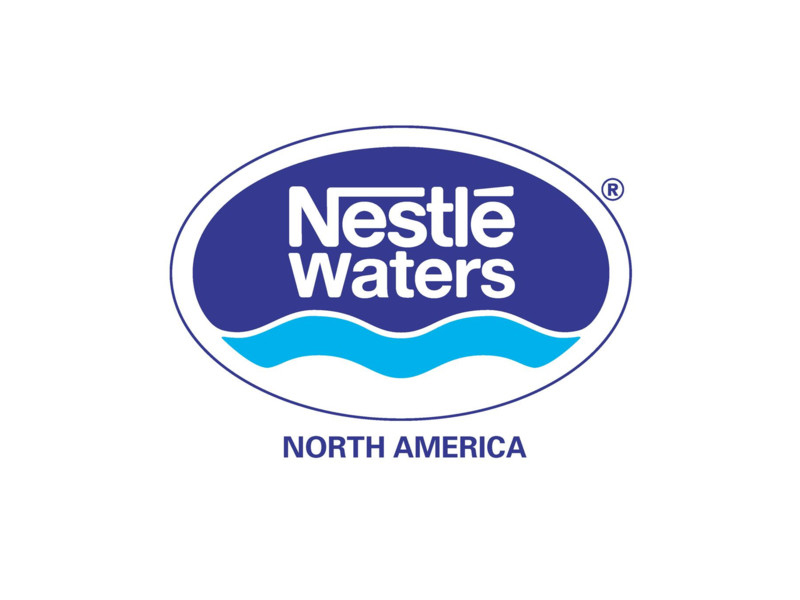Nestlé Waters North America activities in Chaffee County produced economic benefits averaging $764,049 a year in 2019 and 2020, according to information presented by Harvey Economics at the April 20 continuation of the Chaffee County 1041 permit hearing.
Ed and Jessica Harvey presented the results of the economic analysis, which considered positive and negative factors in calculating the net economic impact of Nestlé’s operations.
The final report submitted by Harvey Economics lists average annual benefits of “about $773,000 per year over the past two years,” as detailed in Exhibit 10-1 from the report.

As the exhibit shows, landfill costs of $8,900 are subtracted to arrive at the net economic benefits. The landfill cost is based on the assumption that 33 percent of plastic waste going to the Chaffee County Landfill is from Nestlé Waters products.
According to the report, total annual economic effects of Nestlé Waters’ Chaffee County operations include the net economic impact plus the additional effects of the NWNA money circulating through the local economy.
The report estimates 2030 total annual economic benefits of Nestlé Waters operations in Chaffee County at “approximately $1.2M in output and $646,800 in value added,” which “is equivalent to NWNA’s contribution to local GDP.”
The report compares these economic benefits with the potential economic benefits that would accrue to the county “if the resources which NWNA utilizes were consumed by entities other than NWNA,” concluding that the economic contributions “are roughly similar at the present time.”
As Ed said during the public hearing, “It’s essentially a wash.”
Looking ahead to 2030, the report states, “Alternative water uses are likely to equal or exceed the NWNA’s economic contribution. However, as previously noted, NWNA’s water use does not appear to preclude the deployment of additional water supplies for Chaffee County users in the foreseeable future.”
The report calculates the “comprehensive value” of alternative water uses at $1.3 million per year, with municipal water use valued at $43 million per year and agricultural use at $19,500 per year.
The report also notes, “the cessation of RMSO (Nestlé’s Ruby Mountain Spring Operation) does not immediately mean there is additional water available for the taking by other Chaffee County water users.”
Since Nestlé relies on the Upper Arkansas Water Conservancy District (UAWCD) for augmentation water, the report examines the District’s ability to meet projected water demand.
The District currently provides replacement water for 840 acre-feet of demand, and “according to its manager, UAWCD has the present capability to serve 1,750 AF in demand. …
“There is a sufficient margin to meet Chaffee County’s projected demands through 2030 and probably through 2050.”
Additionally, augmentation water releases to replace Nestlé depletions have “resulted in a net credit to the Arkansas River in each year of operations … about 9.5 AF per year in more recent years.”
The report also discusses local community values, concluding, “Certain community values are inconsistent with single-use plastics production, but the presence of NWNA in the County does not seem to affect residential growth or the economy.”
The Harvey Economics presentation and the full economic report are available on the county website under “Items Continued” on the Public Notices page.
The Commissioners decided to continue the ongoing public hearing at 1 p.m. May 4, when they will consider the permit implications of the change in company ownership and the change of the company name to BlueTriton Brands.
The Commissioners also discussed plans to subsequently continue the public hearing to 1 p.m. May 18 for BlueTriton representatives to respond to the economic report and to allow for public comments on the economic report and the 2020 Nestlé annual report.




